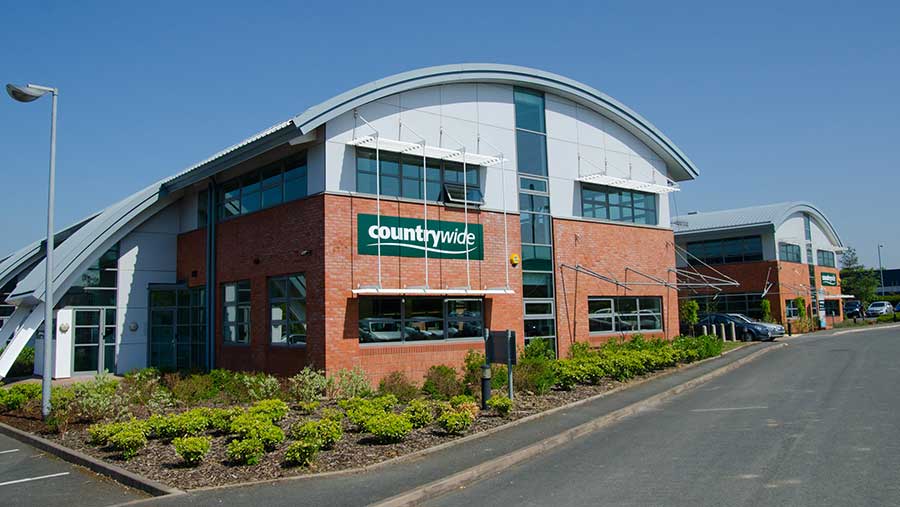Countrywide Farmers calls in administrators

Countrywide Farmers has gone into administration. The rural retailer, livestock feed and energy supplier is mainly farmer-owned and put its 53 retail stores up for sale in May 2017.
David Pike, Mark Orton and Will Wright from KPMG’s restructuring practice have been appointed joint administrators to the business, which employs more than 700 people.
Countrywide is based in Evesham, Worcestershire, and has evolved from a series of mergers and acquisitions of farmer co-ops over many years.
See also: Mole Valley’s proposed Countrywide takeover under scrunity
It operates 48 retail stores in England and Wales selling a range of farming, equestrian, harvesting and agricultural supplies to consumers.
The business has 4,000 mainly farmer shareholders. Its most recent set of accounts, to the end of November 2016, reported operating losses of £9.9m and total losses of £19.9m, after a revaluation of its pension scheme.
Group revenue fell £35.3m on the year on the back of like-for-like sales falling 1.9%, prompting the sell-off of 14 unprofitable stores in March last year.
Redundancies
A statement from KPMG said no initial redundancies had been made as a result of the administration and that the company had sold its liquefied petroleum gas (LPG) business on 1 March 2018, with more than 60 employees transferred to DCC Flogas.
Mole Valley Farmers had sought to buy the retail business, but on 6 March the Competition and Markets Authority (CMA) announced it was referring this for an in-depth investigation.
“Following the recent CMA announcement, the proposed retail transaction cannot proceed,” said David Pike, KPMG partner and joint administrator.
“Unfortunately, given the significant trading difficulties and cashflow pressures, this has led the directors to consider their options and take the difficult decision to place the company into administration.”
KPMG said it is looking for a buyer for all or part of Countrywide and has appointed Hilco Capital to help run the stores while the options are explored.
Countrywide traces its history back to 1902 and became a limited company in 1999. It had focused more recently on expanding the retail side of the business and its liquid petroleum gas business.
It offered close to 7,000 agricultural products in store, catalogue and online.
Mole Valley Farmers offer
It appeared to have been thrown a lifeline after an offer was made for 48 of its stores from rural retail rival Mole Valley Farmers.
However, the CMA had been concerned there would be insufficient competition in the South and South West where the two companies overlapped.
After a preliminary investigation, the CMA announced on 6 March that it was referring the takeover to a full-blown “phase 2” inquiry after the parties had “failed to offer satisfactory undertakings”.
The preliminary investigation warned about competition issues relating to bulk supply of agricultural products, such as feed and fertiliser, in 45 of the 48 areas that Mole Valley was set to acquire.
This was despite Countrywide selling its bulk goods business to Dutch company ForFarmers in 2014, which continues to operate in the area.
The CMA was also concerned about Mole Valley having no rival country stores in 25 of 45 areas if the deal went ahead, which could have affected prices of goods such as outdoor clothing, hand tools and pet food.
Crop protection and seed business sold
Countrywide also sold its crop protection and cereal seed business to agronomy group Hutchinsons in 2014 and its grain marketing arm to Openfield in the same year.
This was to focus in on the retail sector, as well as its interests in turf amenity and LPG, which it saw as being a stronger proposition for long-term growth.
It completed the acquisition of Cornwall Farmers in 2015 for £6m, adding 12 stores in Cornwall and Devon to its portfolio, taking its total number of stores to a peak of 66.
